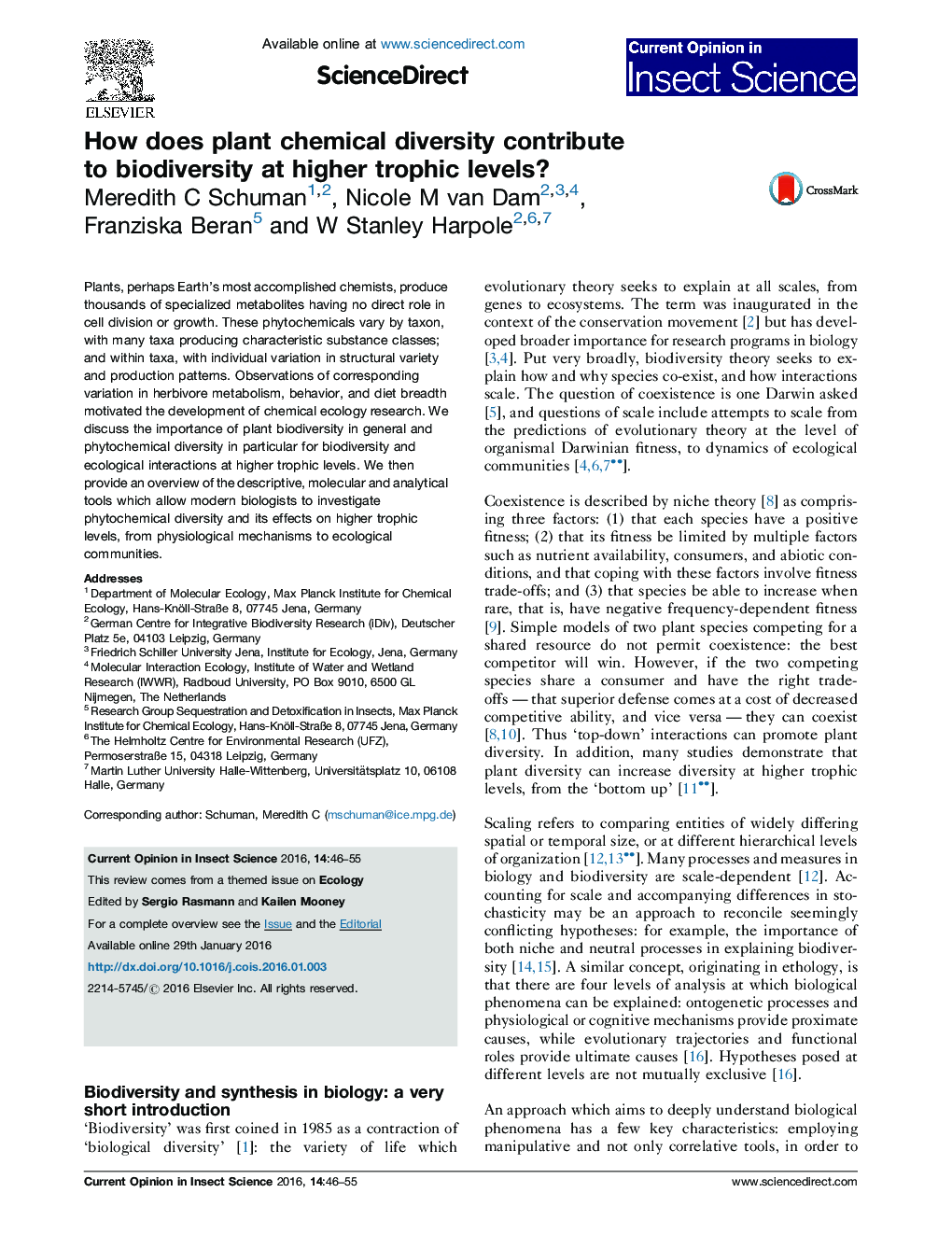| Article ID | Journal | Published Year | Pages | File Type |
|---|---|---|---|---|
| 4508177 | Current Opinion in Insect Science | 2016 | 10 Pages |
•Scale and level of analysis are important when explaining biological phenomena.•Plant specialized metabolites, and insect adaptations, generate biodiversity.•Natural history knowledge can guide mechanistic studies of ecological phenomena.•Metabolomic tools support hypothesis-driven elucidation of biodiversity mechanisms.•Molecular and genetic tools can link biodiversity mechanisms to heritable traits.
Plants, perhaps Earth's most accomplished chemists, produce thousands of specialized metabolites having no direct role in cell division or growth. These phytochemicals vary by taxon, with many taxa producing characteristic substance classes; and within taxa, with individual variation in structural variety and production patterns. Observations of corresponding variation in herbivore metabolism, behavior, and diet breadth motivated the development of chemical ecology research. We discuss the importance of plant biodiversity in general and phytochemical diversity in particular for biodiversity and ecological interactions at higher trophic levels. We then provide an overview of the descriptive, molecular and analytical tools which allow modern biologists to investigate phytochemical diversity and its effects on higher trophic levels, from physiological mechanisms to ecological communities.
Graphical abstractFigure optionsDownload full-size imageDownload as PowerPoint slide
